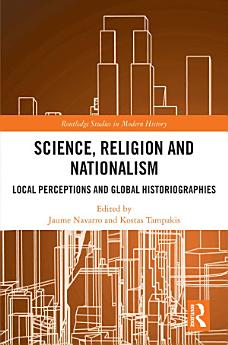Science, Religion and Nationalism: Local Perceptions and Global Historiographies
ഈ ഇ-ബുക്കിനെക്കുറിച്ച്
This book explores the interface between science, religion and nationalism at a local level, paying attention to the roles religious institutions, specific confessional traditions, or an undefined notion of “religion” played in the construction of modern science in national contexts: the use of anti-clerical rhetoric as scapegoat for a perceived scientific and technological backwardness; the part of religious tropes in the emergence of a sense of belonging in new states; the creation of “invented traditions” that included religious and scientific myths so as to promote new identities; the struggles among different confessional traditions in their claims to pre-eminence within a specific nation-state, etc.
Moreover, the chapters in this book illuminate the processes by which religious myths and institutions were largely substituted by stories of progress in science and technology which often contributed to nationalistic ideologies.
രചയിതാവിനെ കുറിച്ച്
Jaume Navarro is an Ikerbasque Research Professor at the University of the Basque Country. A historian of science, his interests lay in the history of physics and in the historiography of science and religion. He is author of, among others, A History of the Electron: J.J. and G.P. Thomson (2012) and Ether and Modernity (2018).
Kostas Tampakis is a Senior Researcher in the National Hellenic Research Foundation. His research interests include the history of the relations of Orthodox Christianity and the sciences and the history of science in Southeastern Europe. He has coauthored, among others, Science and Orthodox Christianity: An Overview (2016).






